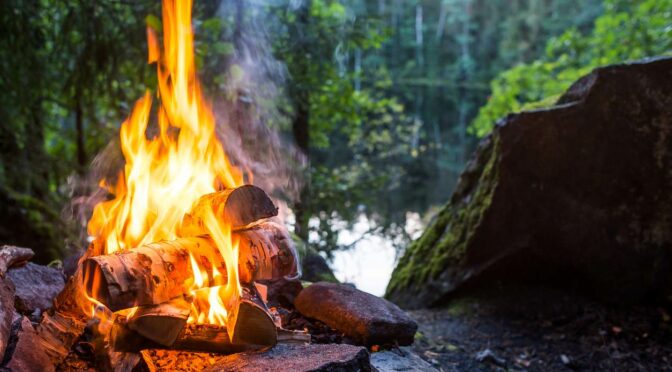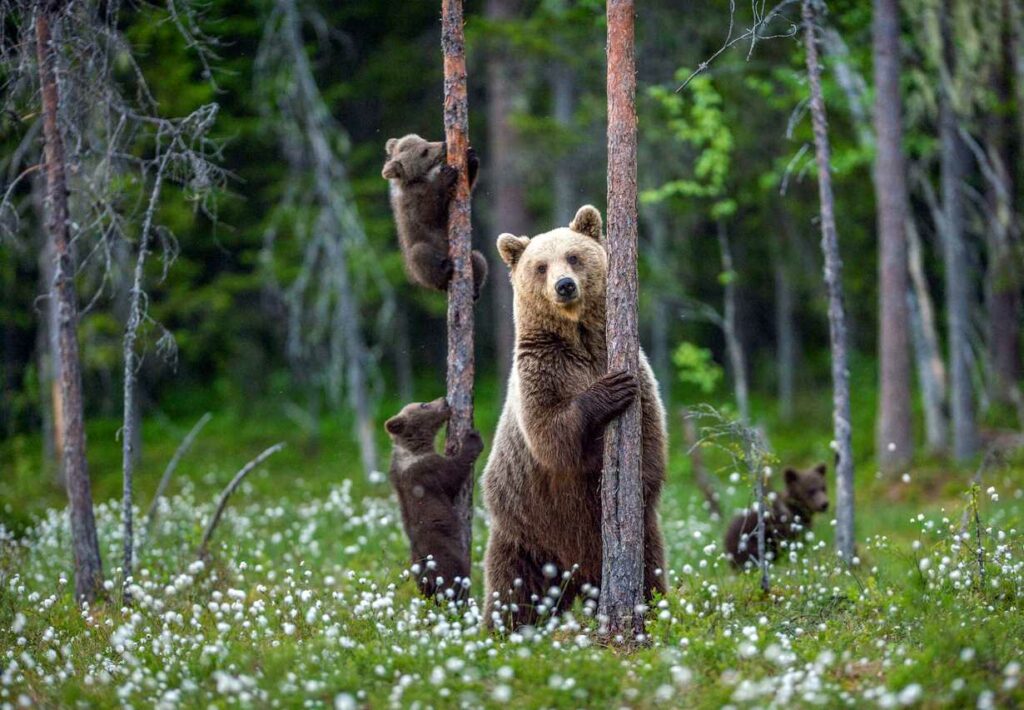
Camping can be a fun experience for the whole family, but it is not without its risks. The hazards associated with camping are numerous, but thankfully, you work to avoid them with careful planning, quality equipment, and a keen awareness of your surroundings.
To help you stay prepared for potential dangers you may experience in the wilderness, let’s dive into the camping safety tips and everything you need to know when exploring the outdoors. With a little foresight, you can help yourself and everyone you are with remain safe and relaxed as you enjoy your time in nature.
What Risks Are Associated With Camping?
The risks you face when camping outdoors are far more nuanced than many people perceive. Obvious threats, such as predators and exposure to extreme weather, can be easily avoided by timing your trip for warm weather and steering clear of predator-prone areas.
Unfortunately, it’s not the threats you know about that pose the most risks. Rather, it’s the unexpected dangers that can catch you off guard if you are not prepared.
Outdoor Safety: The Wilderness and Its Threats
The environment in which you camp has the greatest impact on the risks you face. For example, camping in a forested area reduces visibility, allowing harmful plants and animals to remain out of sight until they are too close for comfort. Other conditions, such as camping in an arid or desert environment, present a greater risk of heat stroke and dehydration as well as an array of harmful creatures.
Hungry Wildlife

Contrary to popular belief, many animal-related attacks are not done in search of food, but rather in defense of territory. Let’s take bears as an example.
The bear safety saying “If it’s brown, lie down. If it’s black, fight back” holds some truth, but if you can reach shelter that should be your priority. Bears tend to live in areas where food is plentiful, such as near streams and lakes where they can feed on an abundant supply of fish, though they are opportunistic scavengers when food runs short.
Without scarcity in their food sources, both brown and black bears, two of the most common species in America, tend to be content with leaving humans alone. However, they will violently defend themselves and their cubs if they feel threatened. Brown bears are particularly aggressive in these situations, though black bears are more nimble and will chase threats high up into the trees.
Many other threats exist, such as mountain lions. These crafty predators prefer to remain out of sight until the opportune moment to pounce, making them especially deadly. Regardless of the species, a defensive predator would be more than happy to make a meal out of you. So stay alert, and be sure to heavily research potential wildlife encounters in your area to familiarize yourself with the most effective ways of deterring them.
Plants and the Environment

While you may be concerned about a predator jumping out from the bushes, don’t forget to analyze the risk the bushes themselves pose to you. Many plants, such as poison ivy and poison oak, are known to cause burning, itching reactions from even a light touch. Gloves and long pants can help avoid harm and should be worn on any hike through dense vegetation, regardless of the temperature.
Additionally, careless footing while hiking can cause you to trip on an exposed root or jagged rock. A sprain or cut from tripping or falling may be considered a minor injury in civilization, but in the woods, your access to medical supplies, no matter how prepared you are, is limited. Practicing safe camping and hiking to avoid minor injuries could potentially save your life.
Awareness Can Keep You Safe
Just as you should be careful where you step, staying constantly aware of your surroundings at all times is vital. If you find yourself foraging, you should never make assumptions about whether a plant is safe to eat. An unassuming mushroom or berry may look appealing but can lead to food poisoning–or worse–if you pick the wrong one.
Loss of fluids, as is common with food poisoning, can be especially deadly while camping where your water supply is limited. If you do find yourself sick in the wilderness, your top priority should be maintaining your hydration, as it will allow you to get the help you need before conditions worsen.
Crucially, you should be aware of your limitations. Some people have limited mobility in their legs and arms, so call out obstacles on your route while you hike. Allergic reactions are far more of a risk when separated from medical resources, so take care to not expose yourself to plants or animals you are allergic to. Warning your friend about a nearby patch of poison oak is more than just a kind gesture–it could save their life.
Camping Precautions and Risk Avoidance
The best thing you can do to keep yourself safe is to be prepared for every risky situation while camping. This means bringing plenty of food, but also having the foresight to hang your perishable items far from your camp to avoid attracting bears and raccoons.
Always pack more resources than you think you need, including large canteens and pre-bottled water, especially if you do not already have a pre-planned stream or other freshwater source. Even if you expect the weather to be fair, always bring extra warm clothing and a rain tarp for your tent.
In case your clothes do get wet, you should always have a spare set of dry clothes, especially socks on hand. Wearing wet socks for prolonged periods can lead to blisters, sores, and fungal infections that will ruin your camping experience and possibly lead to more serious health issues like gangrene if left untreated.
Have a Way to Call for Help
Regardless of how close to a civilized area you may be, always have a method of catching the attention of others in case of trouble, such as a whistle or air horn. While it may add some extra weight to your bag, remember that there is no such thing as over-preparing when it comes to wilderness safety and the wellbeing of you and your loved ones.
Secure Your Gear Year-Round With Central Self Storage
From tents and hiking boots to fishing poles and boats, the supplies you need to enjoy your next trip outdoors do not have to clutter your home. Keep all your gear at the ready and out of the way with a storage unit from Central Self Storage.
Find your perfect storage solution online and reserve your unit today for a hassle-free experience. Your adventure awaits, and we’re here to help you be ready for it.
Contact Central Self Storage or find a facility near you today.


